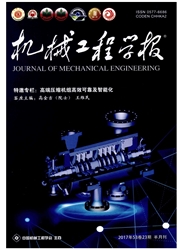

 中文摘要:
中文摘要:
能量约束是无线传感网络实际应用的关键问题之一。针对无线传感网络测量的能效性问题,提出目标预测动态能量优化方法,采用粒子滤波算法对测量目标状态进行预测,通过动态唤醒无线传感节点延长节点睡眠时间节省节点能量。根据无线传感网络节点分布计算能力,运用分布式遗传模拟退火算法优化目标测量过程,使网络能耗最小化。重点讨论机动目标跟踪应用,实现目标位置预测、节点睡眠状态规划和测量节点优化选择,提出节省通信能量的中转节点路由方案。机动目标跟踪的仿真试验表明,目标预测动态能量优化方法能降低节点能耗,并提高无线传感网络的能量有效性。
 英文摘要:
英文摘要:
Energy constraint is a critical problem for practical applications in wireless sensor networks. Focused on the energy efficiency problem of wireless sensor networks, a dynamic power optimization method is proposed with target prediction. Particle filter is introduced to predict target state, which is adopted to awaken wireless sensor nodes so that their sleep time is prolonged. With the distributed computing capability of nodes, distributed genetic algorithm and simulated anneal is proposed to optimize the energy consumption of measurement. Considering the application of.target tracking, target position prediction, node sleep scheduling and optimal sensing node selection are implemented. Moreover, a routing scheme of forwarding nodes is presented to achieve extra energy conservation. Experimental results of target tracking verified that energy-efficiency is enhanced by dynamic power optimization with target prediction in wireless sensor networks.
 同期刊论文项目
同期刊论文项目
 同项目期刊论文
同项目期刊论文
 Parallel energy-efficient coverage optimization with maximum entropy clustering in wireless sensor n
Parallel energy-efficient coverage optimization with maximum entropy clustering in wireless sensor n Multi-agent negotiation mechanisms of statistical classification in wireless multimedia sensor netwo
Multi-agent negotiation mechanisms of statistical classification in wireless multimedia sensor netwo An improved co-evolutionary particle swarm optimization for wireless sensor networks with dynamic de
An improved co-evolutionary particle swarm optimization for wireless sensor networks with dynamic de 期刊信息
期刊信息
